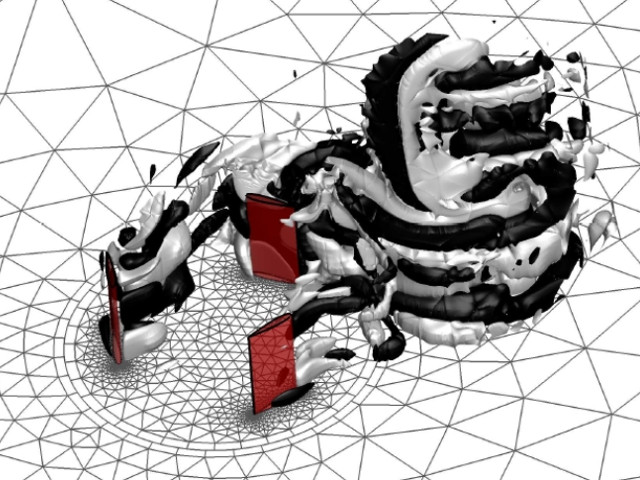We consider a second order PDEs system of Parabolic–Elliptic type with chemotactic terms. The system describes the evolution of a biological species “u” moving towards a higher concentration of a chemical stimuli “v” in a bounded and open domain of RN. In the system considered, the chemotaxis sensitivity depends on the gradient of v, i.e., the chemotaxis term has the following expression
−div(χu|∇v|p−2∇v),
where χ is a positive constant and p satisfies
p∈(1,∞), if N=1 and p∈(1,NN−1), if N≥2.
We obtain uniform bounds in L∞(Ω) and the existence of global in time solutions. For the one-dimensional case we prove the existence of infinitely many non-constant steady-states for p∈(1,2) for any χ positive and a given positive mass.
We obtain uniform bounds in L∞(Ω) and the existence of global in time solutions. For the one-dimensional case we prove the existence of infinitely many non-constant steady-states for p∈(1,2) for any χ positive and a given positive mass.



